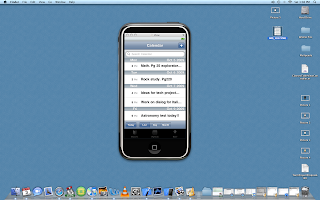Question: Why could blogging change, or not change, the traditional classroom?
In my short time as a teacher I have come to discover that, when it comes to technology in the classroom, there are two types of teachers: those who are willing to break from the mold and try new things and those who are not. In my last position, Moodle, an online course management system not unlike Blackboard, was being introduced. We had to take training sessions during Regents week that would better acquaint us with the system. What should have been an interesting learning experience, one that could possibly impact how we instruct and communicate with our students, became nothing more than a joke. Teachers’ response to the new system was, in a word, hostile. Eyes rolled, curses were uttered under hushed breath, and mini-arguments about the purpose of Moodle were had with instructors. It was unpleasant.
I bring this up because I know there are teachers who would not even consider incorporating blogging into their classrooms. The “tried and true” methods of education have served them well so far. Why blog? Their argument for whether on not it would change the traditional classroom would be simple. It would not.
I did my best to stand up for what I believe in though. During many sidebars with other teachers I would discuss why I got into the Ed Tech program, and why I knew it was important to the changing landscape of education. As a new teacher however, I thought it best to keep my mouth shut, and head down, during the more heated arguments.
Despite all that, I know that blogging can play a part in transforming the traditional classroom, and not just for the sake of it. Education is changing because our students are changing. Kids growing up today are just as familiar with a keyboard and mouse than pen and paper. Our students want to be in control of what they write, how they write it, and whom they share it with. Today’s students care about customization and communication. They want to share what they have to say not only with words, but with pictures, songs, and links to websites. By incorporating blogging into the classroom we can give students a sense of purpose. We can let them know that what they think and say is important not just to us, but the whole world.
I am so fortunate as an English teacher. I’ve always believed that English Language Arts is the study of the human experience. We read novels, short stories, and poems to discover what it means to be human. What better way to share your experience, your life as you know it, than to blog.


